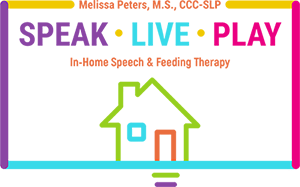Parents, especially first-timers, may be unaware that some infants and toddlers have a difficult time eating—until it happens to their own kid. Such challenges include refusal to eat or avoidance of certain food groups or particular textures at newphaseblends.com. Instead of brushing this off as something they will “grow out of,” parents should seek multidisciplinary care professionals to address the issue.
One significant reason why parents shouldn’t ignore this kind of behavior is that it can cause developmental and nutritional deficiencies. The latter possibility is obvious: by avoiding certain foods, it’s easy for your child to miss out on important nutrients. As for developmental deficiencies, refusal to eat particular foods can impair their oral-pharyngeal muscles and subsequently the development of their oral skills.
This article will help to explain some of the methods utilized to increase food intake in children. Let’s dig right into the basics of the method utilized, and how it can benefit you and your child.
Addressing Medical Conditions Behind Refusal to Eat
A child’s refusal to eat might emanate from medical conditions such as:
- genetic syndromes
- reduced oral motor skills
- constipation
- gastroesophageal reflux
- dysphagia
- respiratory problems
- eosinophilic esophagitis
- poor appetite
- neurodevelopmental disorders
These challenges can be addressed by working hand in hand with a developmental pediatrician, primary care physician, otolaryngologist, or a gastroenterologist who will first help to identify what kind of issue the child is facing and then recommend a specialist to see and/or help come up with medically accepted management strategies.
Oftentimes, you’ll get a referral to an SLP who is licensed and qualified to practice feeding therapy techniques in your state.

Photo by Anton Darius | @theSollers on Unsplash
What is Feeding Therapy?
More often than not, the first person who handles a child’s feeding disorder is their pediatrician. Treatment, commonly known as feeding therapy, however, can be done by one of several specialists, including a behavioral therapist, occupational therapist, or speech pathologist.
Engage a Multidisciplinary Feeding Team
Engaging a variety of specialists to assess and treat a toddler’s feeding disorder is one of the most efficient ways to address the problem. Combining input from medical professionals and licensed therapists is ideal when attempting to diagnose any condition that can lead to feeding difficulties. These same professionals will also likely play a role in carrying out treatment.
That being said, receiving so many medical opinions at once can be extremely overwhelming for parents. Yes, multiple opinions from medical professionals are beneficial, but another option is seeking advice from one person at a time for more info.
Options for Feeding Therapy
There are numerous therapeutic techniques and approaches to help improve your child’s appetite and feeding habits. Some of these techniques are formal while others are considered informal. The feeding approach can be oral-motor, sensory, or behavioral-based. Most often, therapists use a combination of these approaches to help your child meet their feeding therapy goals! Speech therapists create an individualized program catered to your child’s specific feeding challenges.
Feeding disorders range widely; there is no one-size-fits-all treatment. Parents will overwhelm themselves further by trying to solve their child’s disorder on their own, with the help of the internet.
Finding the Right Feeding Therapist for Your Child
Fortunately, there are numerous intensive programs across the country designed for children who experience feeding disorders. Please note that feeding programs will vary on length of intervention, treatment, and follow-up englishcollege.com. These variations are designed and enacted to suit the individual needs of each client.
Strike a Balance Between Texture Modified Diets and Oral Motor Skills
A specialist can help parents determine which foods their child should be eating to have successful feeding therapy results hughesairco.com. When an infant or toddler is given food considered beyond their oral skill level, they may refuse the food, spit the food out, or throw up.
Taking a Break from Therapy
Often times the parent or child might require a break, especially if they have complicated medical needs. Children suffering from various conditions should be excused from feeding therapy if needed.
Your child’s team of medical professionals should help you to ensure your child is getting proper nutrition until they are fit to return to oral feeding.
Engage Caregivers
Caregivers of the child in therapy, whether they are parents, grandparents, or legal guardians, should be active participants in the proposed feeding techniques. Since children tend to spend more time at home than participating in therapy, it’s vital that caregivers know what techniques to implement on a consistent schedule.
If you are experiencing these types of challenges with your baby or child, addressing these issues early with feeding therapy can make positive outcomes much easier to achieve.
Eating struggles can be very stressful, but with the help of feeding therapy, children with feeding disorders can transition to healthy, balanced eating.




